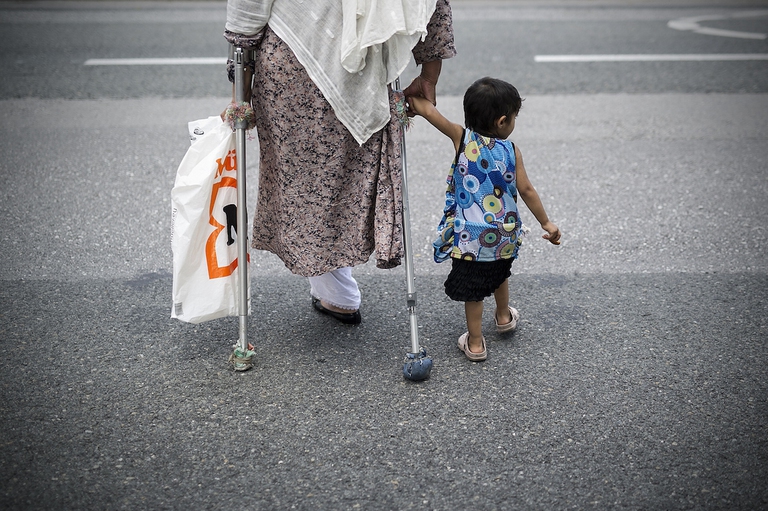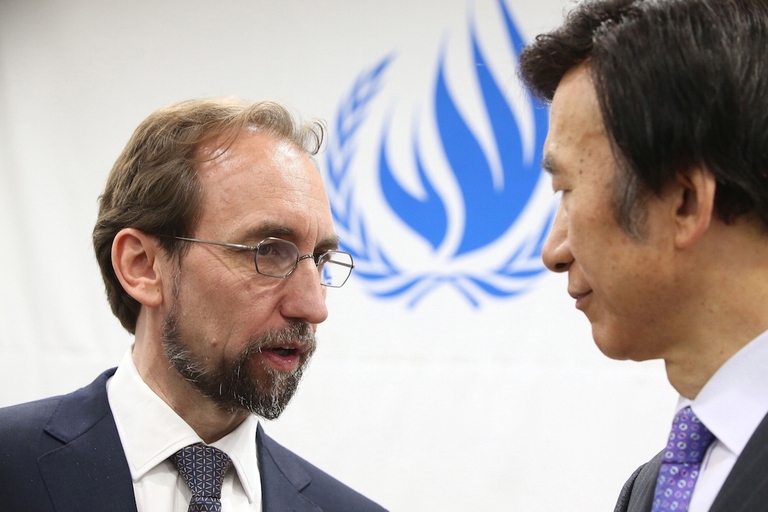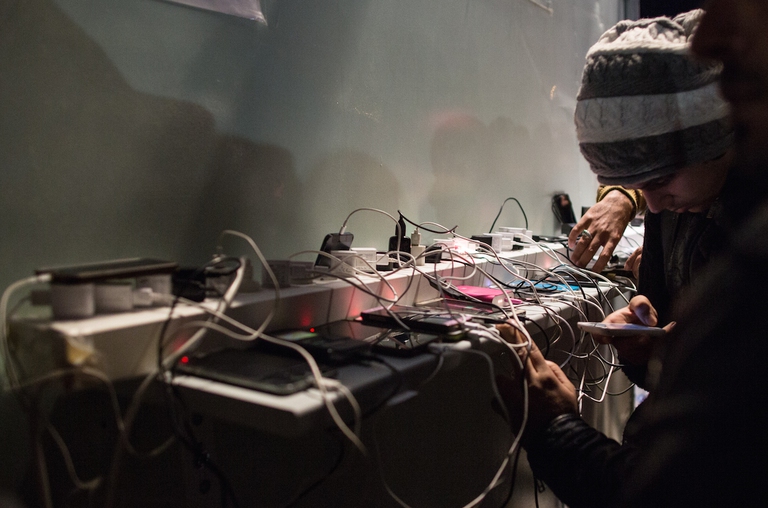
The Louise Michel is the humanitarian rescue ship saving lives in the Mediterranean. Financed by the artist Banksy, it has found a safe port in Sicily.
Secondo l’Alto Commissariato dell’Onu per i Rifugiati i migranti sono detenuti nel Paese europeo in condizioni simili a quelle di prigionieri.
The Czech Republic has systematically detained refugees in “degrading” conditions. The denounce comes from the United Nations High Commissioner for Refugees, which explained in a press release on 22 October how the situation is significantly alarming, particularly for children.
The High Commissioner Zeid Ra’ad Al Hussein said that “the violations of the human rights of migrants are neither isolated nor coincidental, but systematic: they appear to be an integral part of a policy by the Czech government designed to deter migrants and refugees from entering the country or staying there”. In fact, the Czech Republic is “unique in routinely subjecting these migrants and refugees to detention for 40 days, and reportedly sometimes even longer – up to 90 days – in conditions which have been described as degrading”.
Despite it is not the first time that the United Nations intervenes on migrants issues, this denounce represents the first direct attack to a single government. Moreover, it has been made with particular vehemence: “International law is quite clear that immigration detention must be strictly a measure of last resort. And as for children, the UN Committee on the Rights of the Child has emphasized that detention of children on the sole basis of their migration status, or that of their parents, is a violation, is never in their best interests, and is not justifiable.”
The most worrisome conditions have been found in the facility of Bila-Jevoza, about 80 kilometres north of Prague. Its conditions have been in fact described by the Czech Minister for Justice as being “worse than in a prison”. As reported by the news agency AFP, the Czech human rights official Anna Sabatova identified the presence of one hundred children (figures have been published in a report on 13 October).
The report also shows that migrants were deprived of their cellphones, making it impossible for them to communicate with their families. Zeid also denounces systematic strip-searches aimed at confiscating the equivalent of 10 euros per person every day: a sum that would represent the “payment” of their (unwilled) stay at Bila-Jezova. “The fact that people are being forced to pay for their own detention is particularly reprehensible,” Zeid concluded.
Siamo anche su WhatsApp. Segui il canale ufficiale LifeGate per restare aggiornata, aggiornato sulle ultime notizie e sulle nostre attività.
![]()
Quest'opera è distribuita con Licenza Creative Commons Attribuzione - Non commerciale - Non opere derivate 4.0 Internazionale.
The Louise Michel is the humanitarian rescue ship saving lives in the Mediterranean. Financed by the artist Banksy, it has found a safe port in Sicily.
Venezuelan refugees are vulnerable to the worsening outbreak in South America: while coronavirus doesn’t discriminate, it does affect some people more than others.
In the midst of India’s coronavirus lockdown, two dozen people lost their lives in a desperate bid to return home: migrant labourers forced to leave the cities where they worked once starvation began knocking at their doors.
Behrouz Boochani returned to being a free man during the course of this interview. The Kurdish writer was imprisoned by the Australian government in Papua New Guinea for six years.
The Global Compact for Safe, Orderly and Regular Migration was signed by 164 nations in Marrakech. This is what the non-binding agreement that encourages international cooperation stipulates.
The winners of the World Press Photo 2019 tell the stories of migrants in the Americas. From the iconic image of a girl crying on the border between Mexico and the United States to the thousands of people walking from Honduras towards a better life.
The Semìno project is a journey of discovery through different countries’ food habits, offering migrants employment opportunities and allowing us to enjoy the properties of vegetables from all over the world.
Travelling across the new route used by migrants to cross the Balkans and reach Trieste in Italy, a reportage that documents the social, economic and political changes of the countries along the way.
The countries hosting the most refugees aren’t the wealthy, Western ones. An overview by NGO Action Against Hunger reminds us that refugees and internally displaced people are far from being safe.










